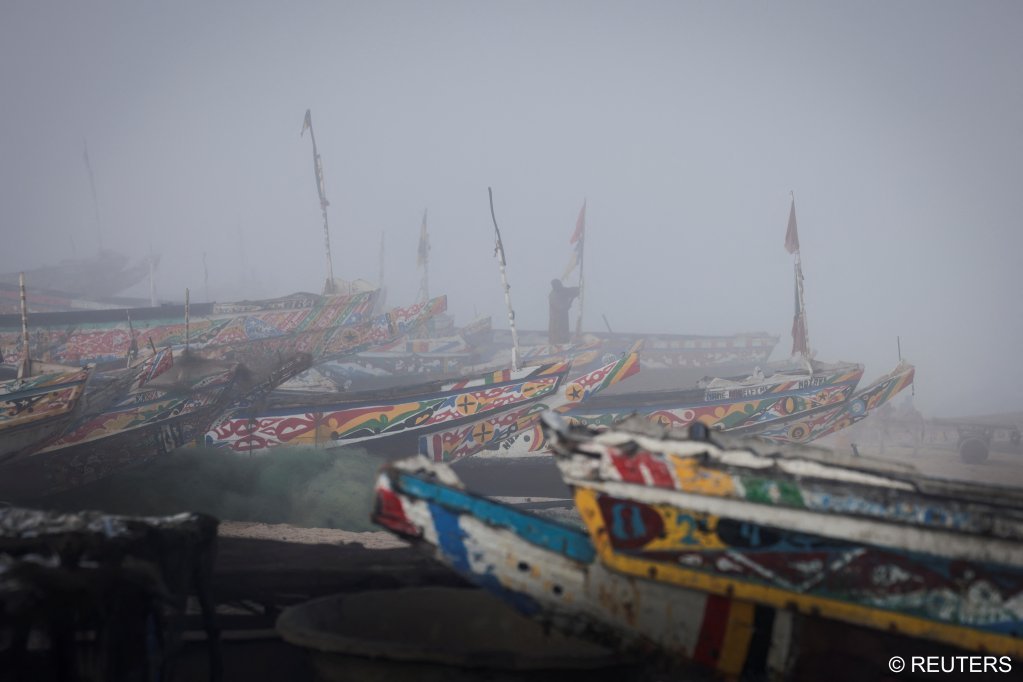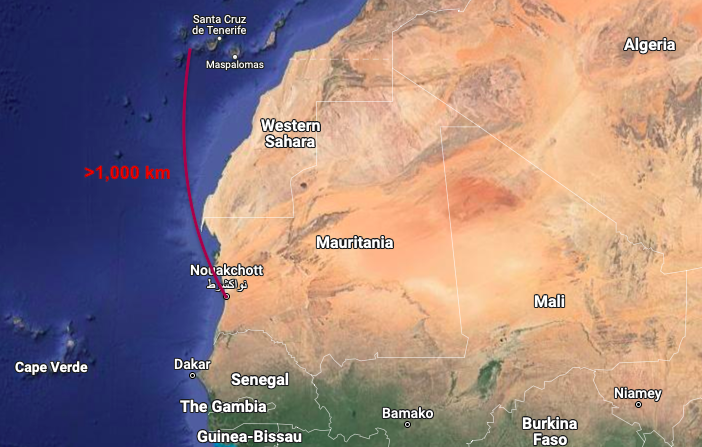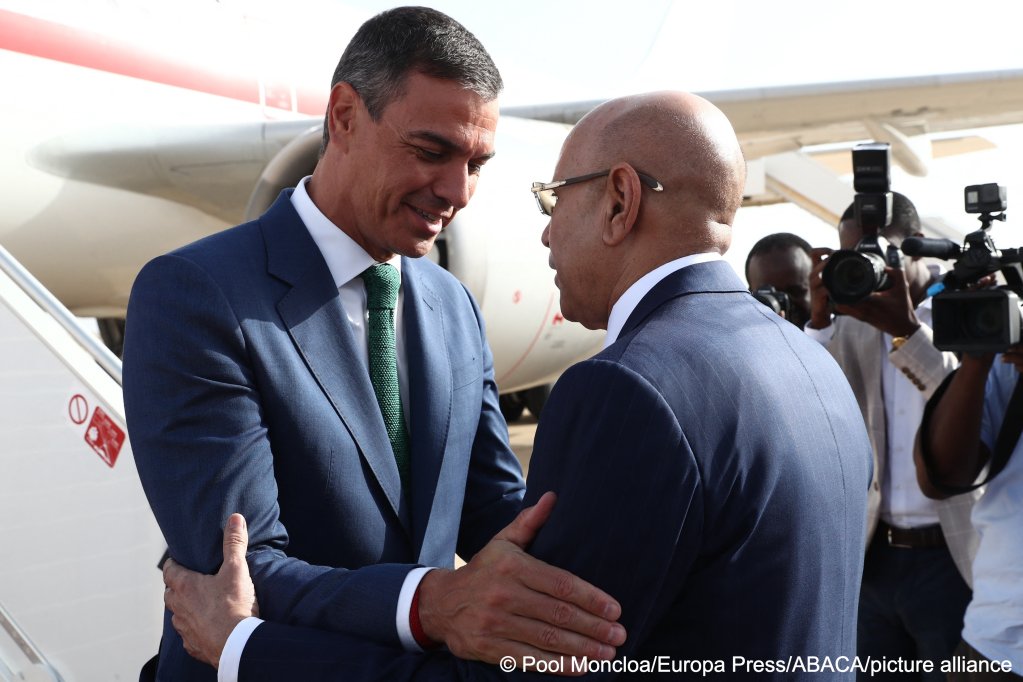Senegal's navy has intercepted almost 600 irregular migrants in the past ten days as political and economic instability drives many in the region to continue seek dangerous routes to Europe.
Senegal's navy has intercepted nearly 600 irregular migrants departing from the country’s coast over the past ten days, according to its social media posts.
A patrol boat picked up 183 people from a long wooden canoe known as a pirogue on Tuesday (October 29) off the western village of Djiffer, the navy posted on X.
The vessel was the second in a week to depart from the Saloum delta -- a network of channels, islands and mangrove swamps on the coast of southern Senegal.
Another boat which had left the delta carrying 230 would-be migrants was intercepted off the coast of the capital Dakar between Saturday night and the early hours of Sunday last week, according to the navy.
Tuesday's operation brings the total number of migrants intercepted in the last ten days to 582, according to social media posts from the navy following three interventions.
Read AlsoBodies of deceased migrants discovered off Senegal's coast
Rising departures
Senegal's coast has become a major departure point for migrants hoping to travel from West Africa to Europe, particularly to the Spanish Canary Islands.
While Senegal is one of Africa's largest economies, it faces rising emigration due to political and economic instability. In response, the EU has recently committed 30 million euros to assist Senegal with migration management and combat human trafficking. The lack of economic opportunities, especially for youth, along with underdevelopment in agriculture, drives many to seek work abroad despite the known dangers.

The Atlantic route is particularly perilous due to strong currents and unpredictable weather conditions, leading to thousands of deaths and disappearances each year from overloaded, often unseaworthy boats. The UN and human rights organizations have reported an increase in fatalities along this route, which has become one of the deadliest for migrants.
In late September, Senegal's navy recovered at least 30 bodies from a boat discovered adrift off the coast of Dakar. Additionally, at least 39 people died in mid-September when a boat carrying migrants sank off the western port town of Mbour. Following these tragedies, Senegalese President Bassirou Diomaye Faye vowed to "relentlessly track down" migrant smugglers and urged young people to remain in the West African country.
Read AlsoEU commits further 30 million euros to Senegal to manage migration
Refugees fleeing the Sahel at 'critical level'
Mauritania like Senegal is situated on the Atlantic route, where Spain's Canary Islands serve as the first point of entry to Europe.
As of October 15, a total of 32,878 irregular migrants had arrived in the Canary Islands by sea, compared to 23,537 during the same period last year, according to the Spanish Interior Ministry.

Many migrants attempting to reach the Canary Islands are escaping insecurity in the Sahel and traveling to Mauritania, where the number of refugees has hit "a critical threshold," Mauritania's defence minister Hanena Ould Sidi said on Monday.
A recent report by the UN Refugee Agency (UNHCR) indicates that there are currently 275,000 refugees and asylum seekers in Mauritania, which has a population of 4.9 million. They are primarily concentrated in the southeast, near the border with Mali, including 112,000 registered in the crowded Mbera refugee camp.
Read AlsoEU's Africa fund 'spread too thinly' to reduce migration
Cooperation with Spain
Located in northwest Africa, Mauritania has recently experienced greater stability than its neighbors, including Mali, Burkina Faso, and Niger, where jihadists and other armed groups are thriving.
During talks with his Spanish counterpart, Margarita Robles, in Nouakchott, Mauritania's defence minister Hanena Ould Sidi warned that the "deteriorating security situation in the region is leading to an intensification of the flow of irregular migrants crossing Mauritania into Spain."

The Spanish government is currently working with West African countries to decrease migration levels. Nouakchott aims to strengthen cooperation programs with Spain and Europe on this issue. In August, Mauritania and Spain pledged to cooperate in tackling people smuggling and promoting legal migration during a visit by Spanish Prime Minister Pedro Sanchez to the Mauritanian capital.
Read AlsoEPP leader meets Egyptian president to discuss migration
With AFP
